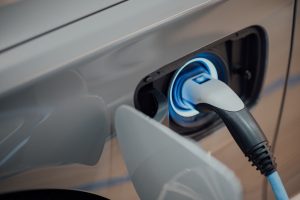In recent years, electric cars have surged in popularity as a promising solution to combat climate change and reduce dependence on fossil fuels. With advancements in technology and growing environmental consciousness, electric vehicles (EVs) are no longer just a niche market but a viable alternative to traditional cars. If you’re considering making the switch to electric, here’s what you need to know:
Environmental Benefits:
One of the primary reasons for the rise in electric cars is their eco-friendly nature. EVs produce zero tailpipe emissions, helping to reduce air pollution and greenhouse gas emissions, which are major contributors to climate change. By choosing an electric car, you’re contributing to a cleaner and greener future.

Cost Savings:
While the initial purchase price of electric cars may be higher than conventional vehicles, they offer significant long-term cost savings. Electric cars have lower operating and maintenance costs since they have fewer moving parts and don’t require regular oil changes or tune-ups. Additionally, electricity is generally cheaper than petrol or diesel, resulting in lower fuel costs over time. It’s estimated that you could save around £700 per year with an EV!
Range and Charging Infrastructure:
The fear of running out of battery power while driving has been a common concern for prospective electric car buyers. However, modern EVs are equipped with advanced battery technology, providing longer ranges on a single charge – most can do 200-300 miles on a full charge. Moreover, the rapidly expanding charging infrastructure includes public charging stations and home charging solutions, making it easier than ever to recharge your electric vehicle on the go.
Performance and Driving Experience:
Electric cars are known for their smooth and quiet operation. The absence of a traditional combustion engine results in a quieter and more refined driving experience. Many electric vehicles also offer advanced features and technologies, such as regenerative braking and adaptive cruise control, enhancing both performance and safety.
Government Incentives:
To encourage the adoption of electric vehicles, many governments around the world offer various incentives and subsidies. These incentives may include tax credits, rebates, reduced registration fees, and access to carpool lanes. In fact, the UK recently announced that even drivers without access to off-street parking will be eligible for a grant! Be sure to research available incentives in your area to maximise savings on your electric car purchase.

Charging at Home:
One of the most convenient aspects of owning an electric car is the ability to charge it at home. With a residential charging station, you can easily replenish your car’s battery overnight while you sleep. This eliminates the need for frequent trips to the petrol station and ensures that your vehicle is always ready to go when you are.
Vehicle Options:
The electric vehicle market has expanded rapidly in recent years, offering a wide range of options to suit different preferences and budgets. Whatever you’re looking for, there’s likely an electric vehicle that meets your needs.
In conclusion, electric cars represent a cleaner, more sustainable transportation solution with numerous benefits for both the environment and consumers. As technology continues to advance and infrastructure improves, electric vehicles are poised to play a significant role in the future of transportation. If you’re ready to make the switch to electric, now is an excellent time to explore your options and join the electric revolution.
